Joint Symposium by the Ajinomoto Foundation for Dietary Culture and NIHU “Relishing the Diversity of Local Dishes Through Dialects: Stories of Change and Transmission”
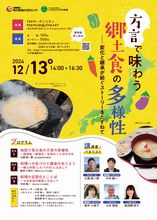
The National Institutes for the Humanities (NIHU) and the Ajinomoto Foundation for Dietary Culture have been jointly hosting annual symposiums on food and culinary culture since 2018. The theme of the symposium—the eighth in the series—was “Relishing the Diversity of Local Dishes Through Dialects: Stories of Change and Transmission.” The video of the symposium, recorded at the TKP Garden City Premium Shinagawa’s Heart venue on December 13, 2024, is available on the YouTube channels of NIHU and the Ajinomoto Foundation for Dietary Culture.
Joint Symposium by the Ajinomoto Foundation for Dietary Culture and NIHU
“Relishing the Diversity of Local Dishes Through Dialects: Stories of Change and Transmission”
Professor ONISHI’s presentation, titled “Examining the Diversity of Food-Related Dialects Through the Linguistic Atlas of Japan : An Analysis of Words Describing Dish Names, Cooking Methods, and Taste,” primarily featured results of surveys from the 1960s. The maps revealed that people in most regions across Japan express the taste of sugar as amai (“sweet”), whereas some areas such as Tōhoku and Kyūshū describe it as umai (meaning “tasty” in standard Japanese).
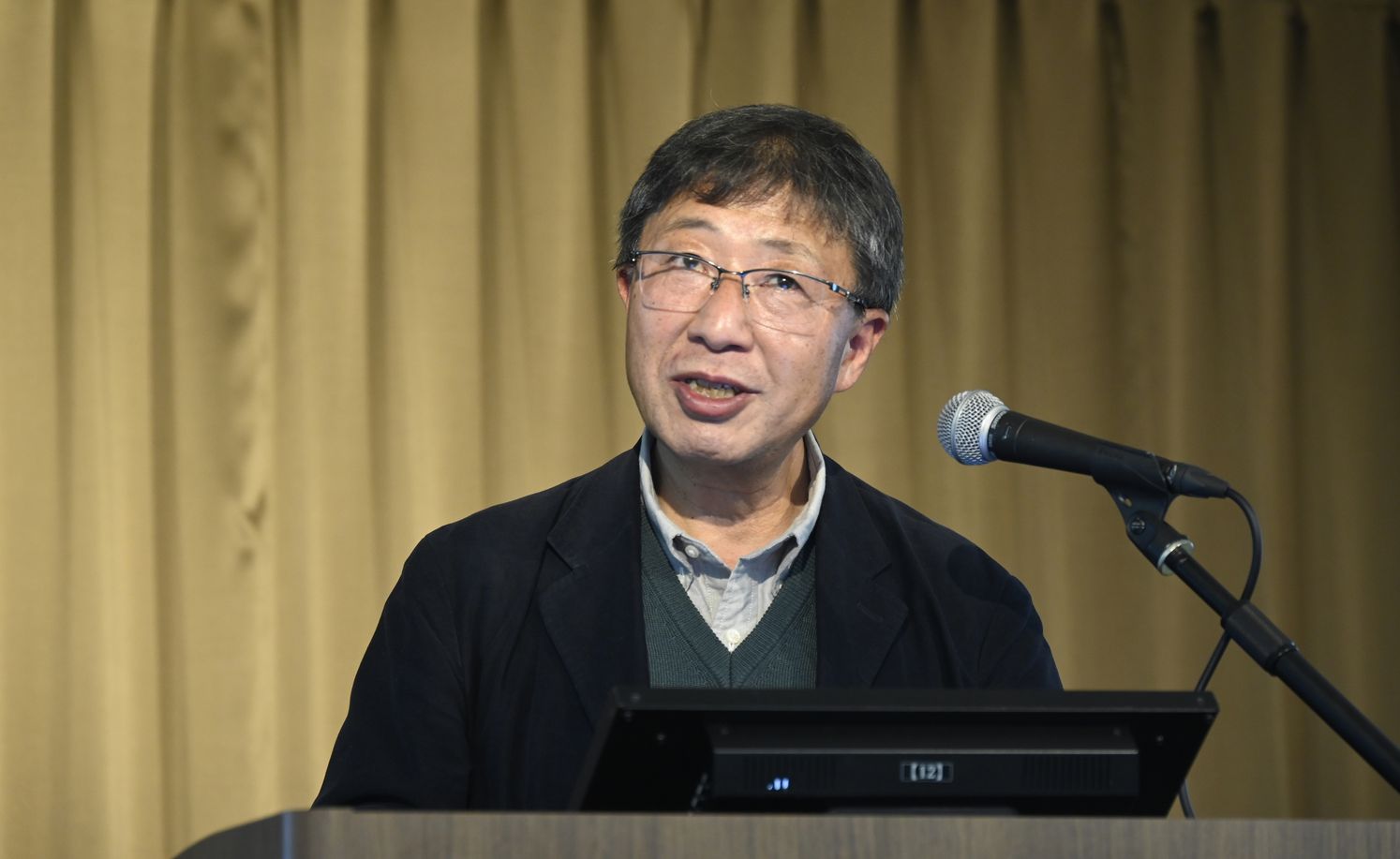
The next presentation by Professor ARAI, titled “How Cuisine Is Named and Passed Down: A Case Study on the Local Dish Shimotsukare,” featured shimotsukare, a local specialty eaten primarily in Tochigi Prefecture and the surrounding northern Kantō area. The dish appears in works as old as the Uji shūi monogatari (Uji Collection of Tales) of the Kamakura period (1185–1333), and has other names such as sumutsukari or sumitsukare, depending on the period or region. Its preparation methods and ingredients are diverse as well.
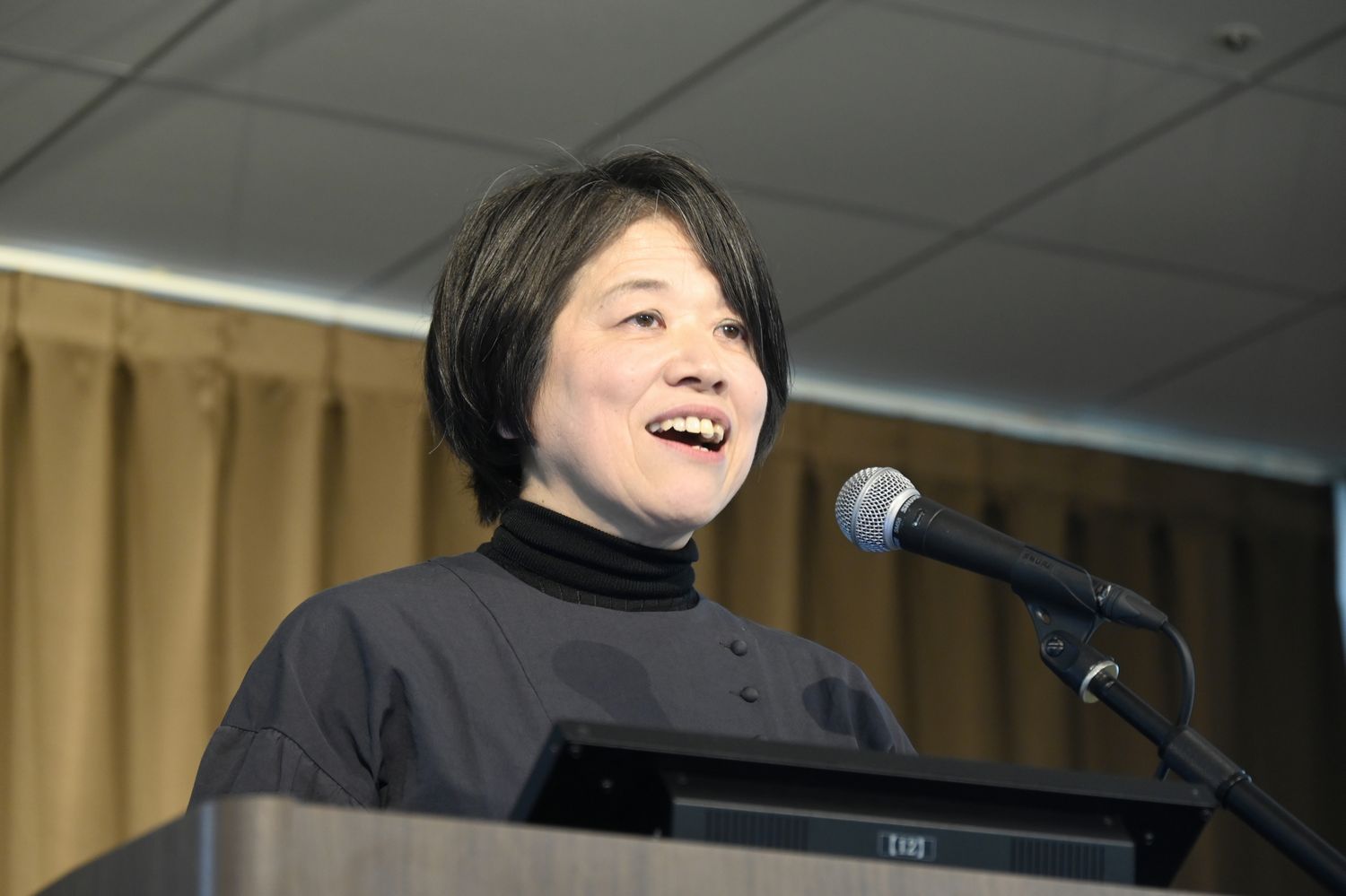
Professor NAKAI was the final presenter. In his presentation “Culinary Standardization and Language: Focusing on Zōni Around Japan,” he reported the diverse recipes for zōni—traditional New Year’s soup enjoyed across Japan—not only in terms of differences in the shapes of mochi (rice cake) ingredient, the broth, or the other ingredients, but also in the etiquette for eating the soup, among other factors. NAKAI observed that the diversity seems to stem from the fact that zōni is a relatively new dish and has yet to be thoroughly standardized or formalized. He also spoke about the relationship between language and the diversity of foods and ingredients.
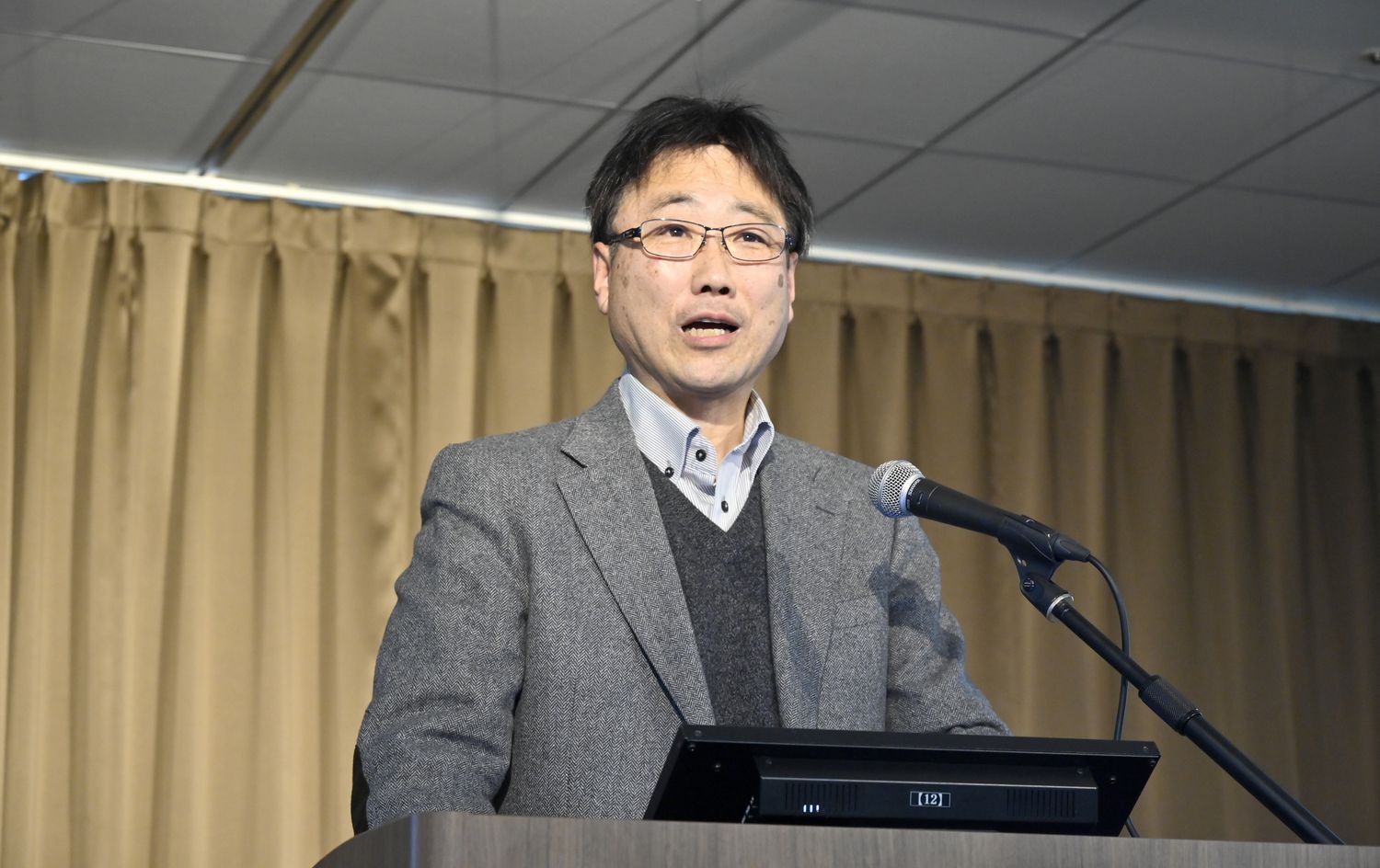
[Panel Discussion]
Moderator: ONISHI Takuichiro
Panelists: ARAI Saeko, NAKAI Seiichi, DOI Yoshiharu (Culinary Researcher and Representative of “Oishimono Kenkyujo” (Institute of Delicious Foods)), HIGASHIYOTSUYANAGI Shoko (Professor, Baika Women’s University)
DOI Yoshiharu, a culinary researcher, and Professor HIGASHIYOTSUYANAGI Shoko, a specialist on food culture, joined Professors ARAI and NAKAI as panelists for the panel discussion. The panelists answered questions about how parental influence and other aspects of a respondent’s life history affect his or her responses in a culinary survey, and commented on the naming, terms, and translation of food and meals. In the final segment, Professor ONISHI—the moderator—and the panelists exchanged views on issues related to expressions of taste, such as what karakuchi (“dry”) indicates in the context of sake. The session closed on a high note, revealing the range of interpretations the panelists had on karakuchi.
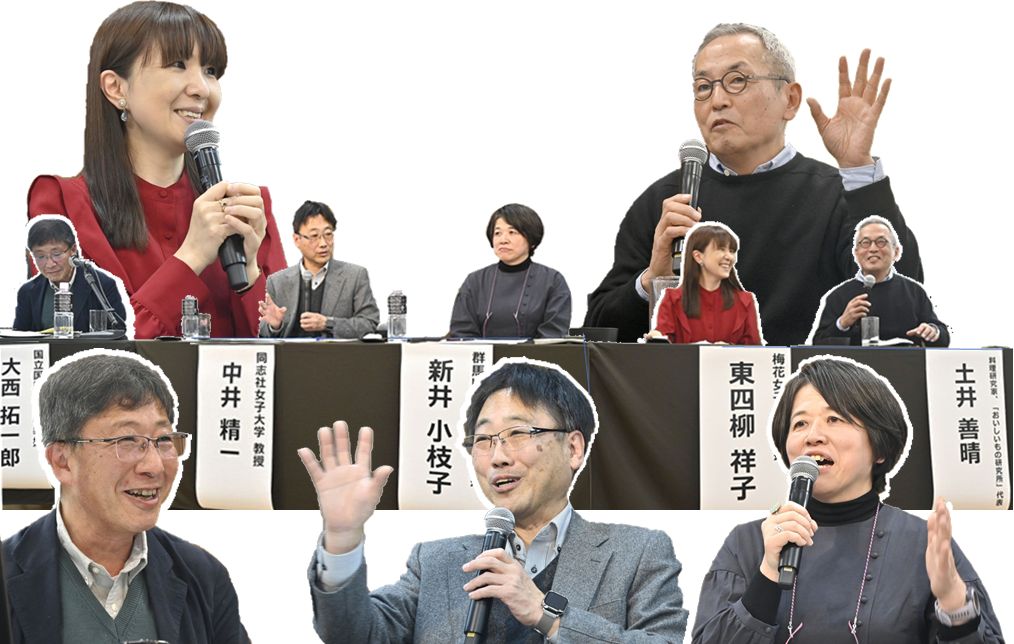
Text: OHBA Go, Research Fellow, the Center for Innovative Research, the National Institutes for the Humanities
